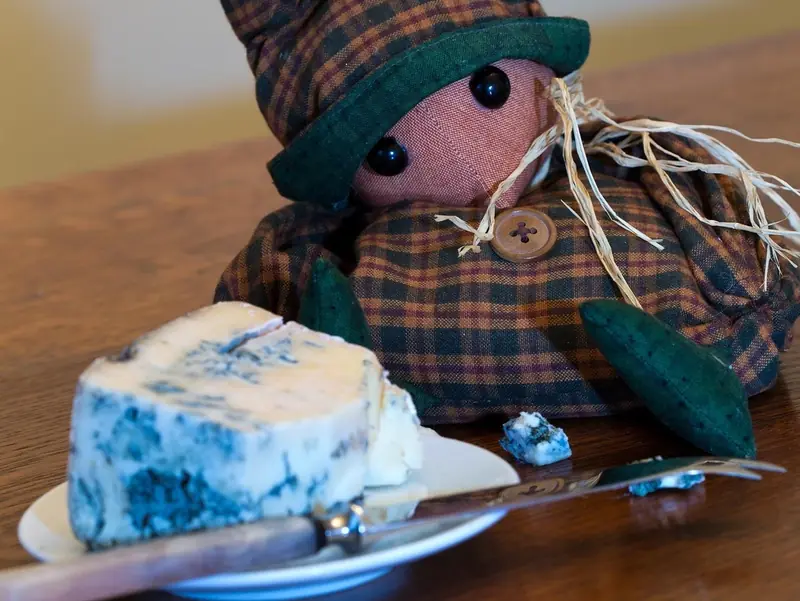
If you believe your grandmother’s tales, those who want a good night’s sleep should steer clear of cheese before bed. But is there any truth to this myth?
A study by the British company The Odd Company has finally settled the debate on whether cheese causes nightmares. The findings will make us think twice about our late-night snack choices.
What Did the Experts Discover?
The research team enlisted 30 volunteers who consumed four popular cheeses—brie, cheddar, mozzarella, and Stilton (an English semi-soft cheese with blue mold)—over four evenings.
Scientists found that eating 30 grams of cheese before bedtime increased the likelihood of experiencing nightmares by an average of 93 percent.
Participants reported that their dreams during the study became darker, more stressful, and creepier. Some volunteers even dreamt of being betrayed, encountering an ex-partner, being forgotten on their birthday, friends being attacked by robots, and being scolded by a teacher during a salsa lesson.
The biggest culprit for nightmares turned out to be brie, which triggered bad dreams in 68 percent of participants. Stilton followed closely behind, affecting 63 percent, while cheddar caused nightmares in 56 percent and mozzarella in 40 percent.
The study also revealed that consuming cheese at night led to an average loss of one hour and seven minutes of sleep for half of the volunteers. Women lost about five minutes more sleep on average than men, according to the Daily Mail.

How Can We Explain the Connection Between Cheese and Dreams?
Australian dietitian Amy Alexander commented on the study’s results: “Cheese can affect the quality and duration of sleep depending on its nutritional composition. It contains saturated fats and proteins that take a long time to digest and can raise body temperature. If your digestive system is still working hours after snacking on cheese at midnight, it can interfere with deep, restorative sleep.”
The expert noted that another possible link between cheese and dreams is the presence of tryptophan. This amino acid is involved in the synthesis of serotonin and melatonin—hormones that regulate mood, sleep, and circadian rhythms.
High levels of serotonin can influence the rapid eye movement (REM) sleep phase, during which we experience the most vivid dreams.
“Cheese contains a natural compound called tyramine, especially in aged cheeses like Parmesan, Gouda, and Roquefort. Tyramine is believed to trigger the release of norepinephrine—a stimulant that increases heart and brain activity. This can lead to more intense dreams or more awakenings during REM sleep in sensitive individuals, potentially resulting in the recall of unpleasant or vivid dreams,” Ms. Alexander added. Tyramine can also provoke migraine attacks.
Meanwhile, specialists at the Mayo Clinic (USA) assert that aged artisanal cheeses typically contain high levels of tyramine. Cheddar and Stilton have particularly high tyramine content, although brie also has a significant amount.
As for mozzarella—an unaged cheese usually made from pasteurized milk—it contains much less tyramine. This may explain why mozzarella ranks lowest among the cheeses that cause nightmares. Researchers advised all cheese lovers to enjoy their favorite varieties at least two to four hours before bedtime.
